7 house cleaning tips for the elderly this spring
Tags
Living Well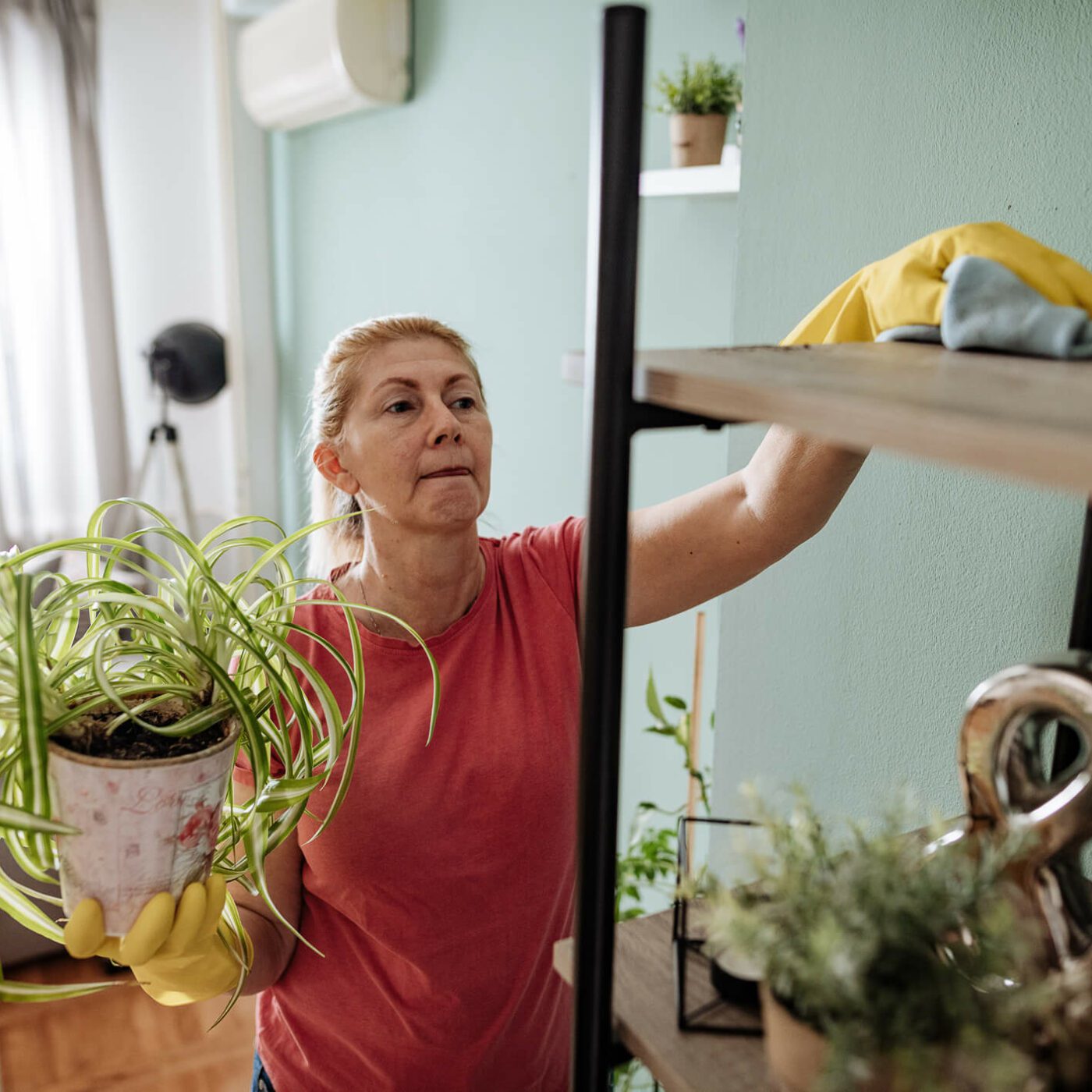
With longer, brighter, and most importantly, warmer days rolling in, many of us will be thinking about getting on top of certain domestic tasks. This could mean swapping out the winter wardrobe, cleaning out some clutter, or giving the entire house a good clean.
Basic housekeeping tasks are often one of the first things people find more difficult as they get older. They may find they don’t have the energy or stamina to clean windows, mop floors or push a vacuum around, and reaching dusty corners or bending to clean a toilet or bath can be painful for older joints and bones.
However, just because some tasks aren’t as easy as they used to be, doesn’t mean older people don’t want to be involved in sprucing up their homes for spring. In this article, we look at 7 ways to make spring cleaning more accessible in later life, as well as tasks to think about that can help improve quality of life.
Why is it important for older people to keep a clean and tidy home?
First and foremost, a clean house is a safer house. Excess clutter can be a trip hazard, and even more so for people with poor balance or mobility. Dirty surfaces, spilt food, and unwashed textiles can lead to bacteria around the home. For older people with weaker immune systems, regular cleaning is important as it can help prevent the spread of viral infections, especially if they have lots of visitors.
A dirty and cluttered home can impact an older person’s social life too. If they’re unable to keep on top of things they may feel ashamed of their home and how they’re living, and stop inviting friends and family around. This may lead to loneliness and poor mental wellbeing.
Things to consider
Before getting started, it can be helpful to sit down and make a plan, think about what you or your loved one can realistically achieve without pushing themselves too far or risking injury. You may want to list all the things that need doing and split them out into manageable cleaning tasks, and tasks that will require deep cleaning or heavy lifting. The biggest issues will likely need the support of cleaning specialists.
Once you have your list of light cleaning and tidying tasks you may want to split these again into one off or yearly cleaning tasks, and things that need to be added to your regular cleaning routine.
Remember, once you know what needs doing you don’t have to complete everything in one day. You may wish to work through the home one room at a time and work in one hour chunks with plenty of rest breaks.
7 spring house cleaning tips for the elderly
Make decluttering a priority
This is a less-strenuous job that can make a really big difference. Going through cupboards and forgotten shelves almost always turns up items that can either be disposed of, or donated to someone else who would find it useful.
Of course, it’s not always easy for elderly people to part with things – and if you’re helping an older loved one, what might look like useless junk to you, could have sentimental value to them. The key thing here is to allow them plenty of time to consider what to keep, sell, donate or throw away. Don’t argue with them if you don’t agree, instead remind them of the benefits of decluttering, for example how letting go of things can be liberating and help reduce stress, as well as making the home easier to manage and more comfortable to be in.
If there’s a particular cause you or your loved one is passionate about supporting, donating unnecessary items to their charity shop or raising extra money for them by selling items at a car boot sale can be a big motivator. Clothes that are in good order could also be donated to homeless shelters, and many animal rehoming centres accept donations of towels and blankets too.
Make the most of spare rooms
If you or a loved one has adult children who have moved out then you’ll likely have a spare room or two that could be put to better use.
Often these rooms end up being dumping grounds for things that don’t have a place or purpose. However refocusing the room around a hobby or interest can make it a more enjoyable and clean space to be in, and most importantly, prevent clutter from building up. For example, if your loved one is an avid reader, putting up some shelves and adding a comfy chair can transform a spare room into a library / reading room.
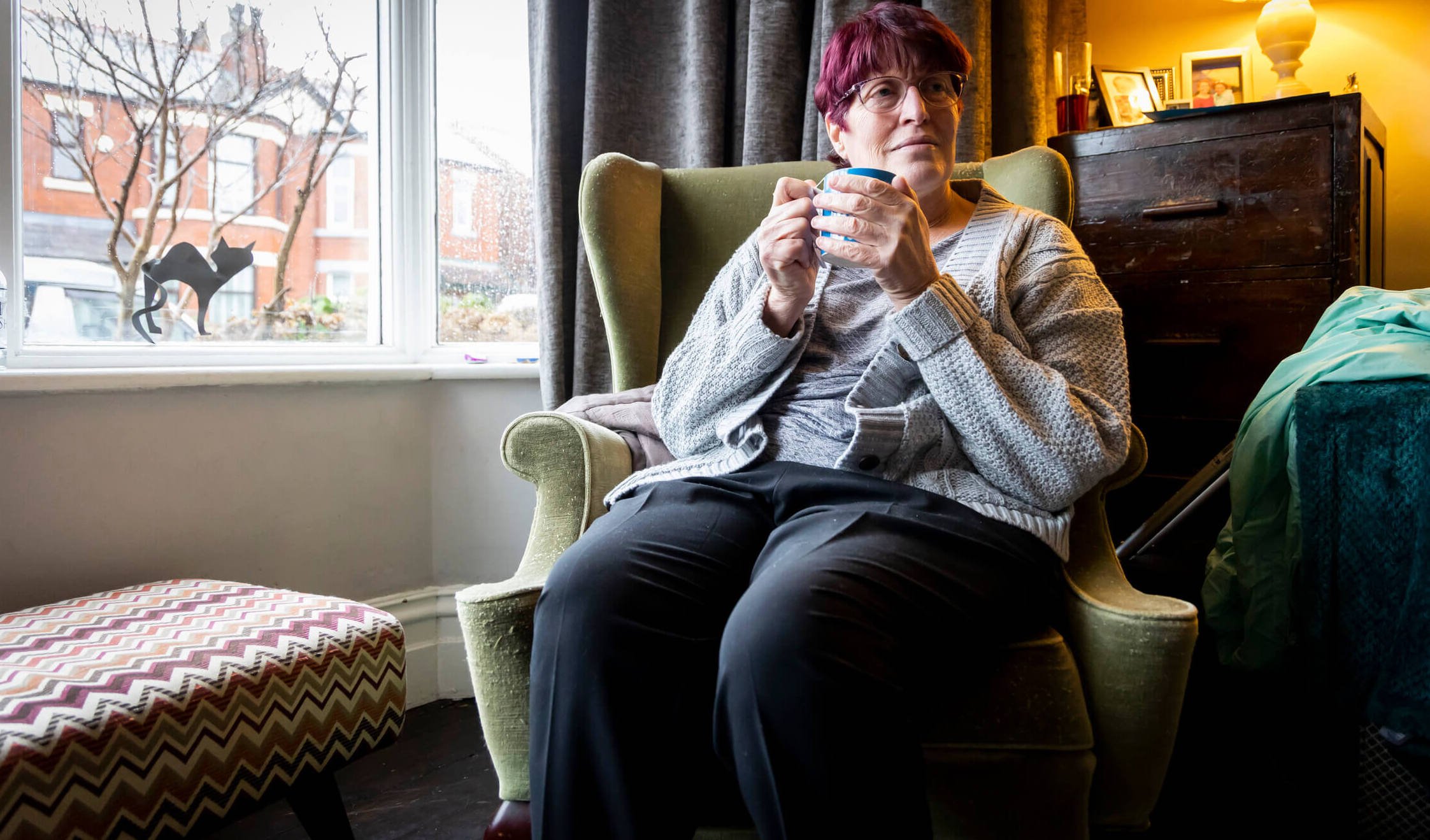
Use the right tools
The right tools can make a world of difference, and help an older person stay as independent as possible. For example, extendable feather dusters can help them get to hard to reach spots, while a long handled litter picker can help get items off the floor without bending down. Cordless cleaning tools remove the risk of tripping over trailing electric wires, plus many new cordless vacuums are lightweight and a lot easier to manoeuvre than older models.
It can also help to think about the cleaning products you use, and keep the essentials in a wheeled cart that can easily be moved from room to room. If your older loved one has sensitive or delicate skin, or is prone to confusion you may want to avoid products that contain harsh chemicals or irritants. A number of brands specialise in natural or chemical free cleaning products.
Check lighting and alarms
Light bulbs and smoke alarm batteries can be dangerous for older people to change, especially if they struggle with strength and balance. If you’re helping loved one around the home it’s a good opportunity to look out for and change any that are no longer working. At the same time, check that light fixtures are free from dust and cobwebs.
Keeping rooms as well-lit as possible is really important – and this included natural light during the day. Dust blinds and ensure the windows are clean to ensure the maximum amount of light can get into the house – you may wish to find a professional window cleaner with the right equipment to ensure this is done safely, and to get a longer lasting and better result.
Dispose of expired food in the fridge and cupboards
If you or your loved one is beginning to find cooking and meal preparation difficult, they may not be doing it as often as they should – instead choosing convenience foods or preprepared meals. This means expired food can easy pile up in the cupboard and fridge. Go through and throw out anything that’s out of date, and try to plan meals with anything close to expiring to reduce waste. Arrange everything you’re keeping so that it’s easier to keep track of – for example, place tins with the label facing outwards, and ensure vegetables are in the crisper trays at the bottom of the fridge.
It can be a good idea to do this ahead of arranging a food delivery or doing a weekly shop as you’ll know exactly what you have, and what to stock up on.
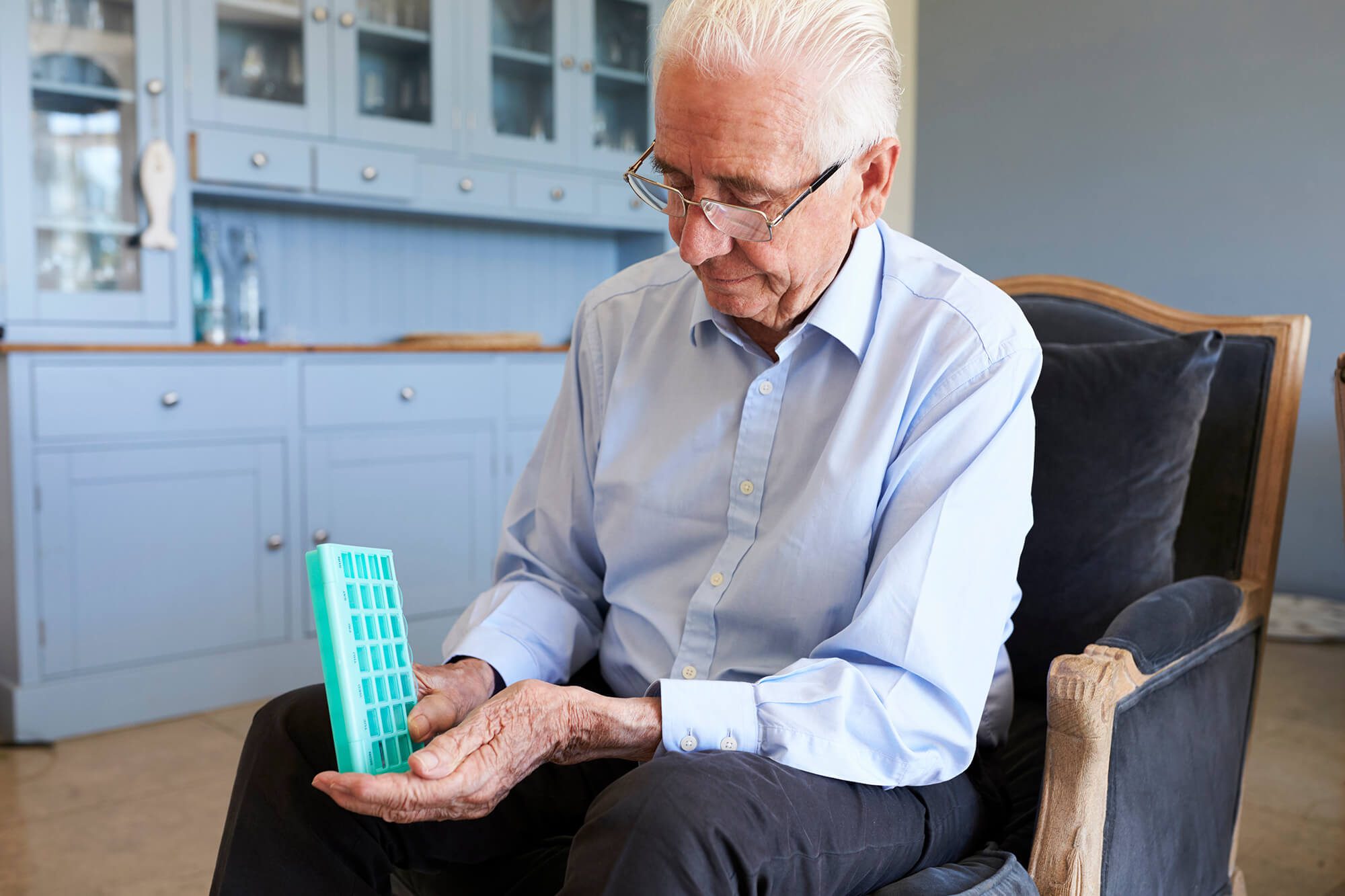
Clean out the medicine cabinet
Old prescription and over the counter medications can build up over time, which doesn’t just create clutter, but can be dangerous too. Expired medications don’t work, and if an older person struggles with their vision, or gets confused they may end up taking the wrong medication, or something they no longer need to take.
Go through the cabinet together alongside a list of current medications from the doctor. You may also find it useful to organise weekly medication into a dosette box, to avoid having to open different bottles and blister packs each day.
Anything out of date or no longer needed should be disposed of properly. Pharmacies will accept unwanted medication, and recycle and dispose of them safely and legally in line with UK legislation.
Clean the mattress
Despite most adults spending around 56 hours a week in bed, very few of us clean our mattresses regularly. This may not sound too bad to some, but add to this that on average humans naturally produce around 26 gallons of sweat in bed every year, and 200,000 skin cells every hour a mattress can quickly become a haven for bacteria. Vacuuming a mattress regularly, and giving it a few hours to air out when changing bed linens can help freshen it up. For deep cleaning, it may be best to get a professional service to help, as mattresses are heavy and it can take specialist products to lift stains.
Spring cleaning checklist
If you’re still unsure where to start, we’ve created a printable checklist PDF that you can save and download below. In it you’ll find a wide range of daily tasks to help maintain a safe and clean environment, and can choose if you’d like to complete them yourself, or delegate them to cleaning services.
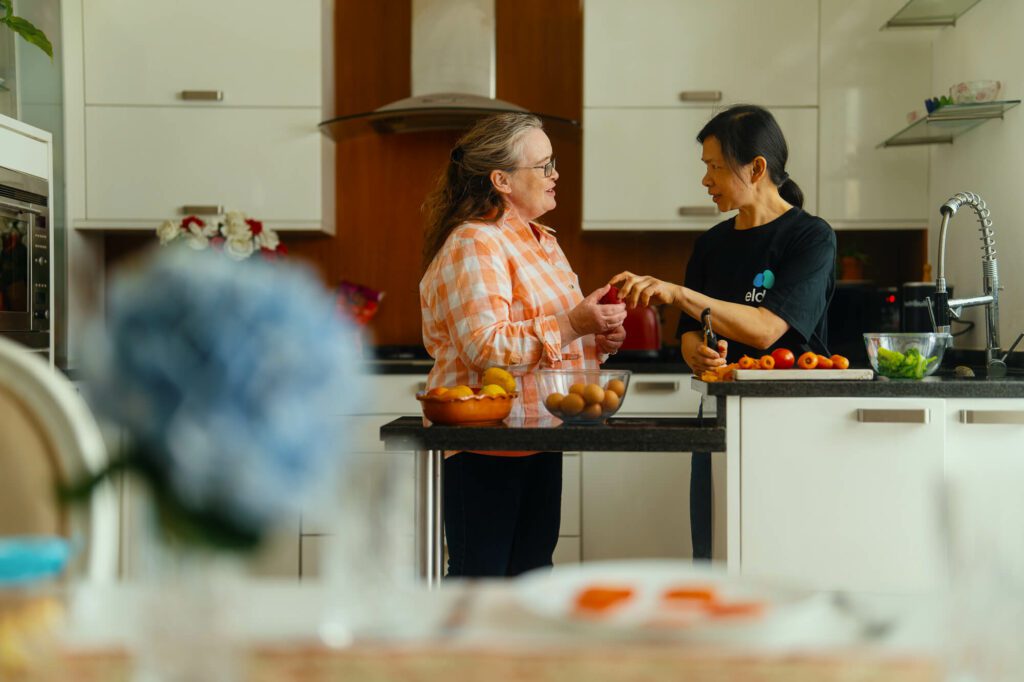
Cleaning support from care professionals
If daily house chores are becoming too much, home carers can help stay on top of things, alongside their caring responsibilities. Find out the kind of support they can offer around the home here.
Read more later life articles
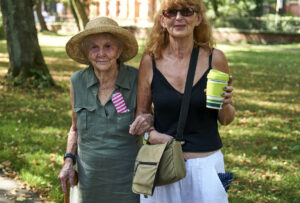
12 summer safety tips for the elderly
It’s important for everyone to take care in hot weather – anyone can become unwell if they’re exposed to soaring temperatures. However, for older people
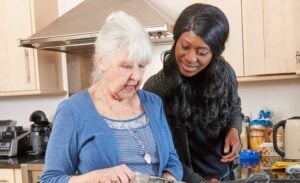
Live-in care vs other types of care
Live-in care vs other types of care Navigating elderly care options for a loved one is a significant decision. While care homes are a common

Defining Dignity in Later Life – Interview with Liz Lloyd
We talked to Liz Lloyd about personal and social perceptions of age, the challenges of identity, empowerment and choice.

The Challenges of Vegetarians and Vegans Living with Dementia
We talk to Amanda Woodvine about the challenges faced by older vegetarians and vegans receiving care. Read more here.

How much does live-in care cost?
How much does live-in care cost? Live-in care provides one-to-one support in the comfort of your loved one’s home, but how much does it cost?

How much does respite care cost?
Respite care offers short-term relief for primary carers, and the cost can vary widely depending on the type of care, location, and level of support